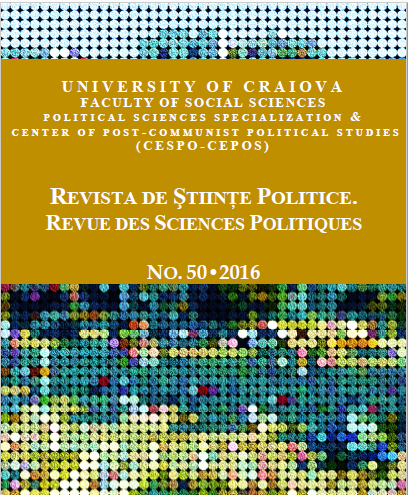Direct Democracy in Romania after 1989: Particularities of the Formal-Legal and Practical Aspects
Direct Democracy in Romania after 1989: Particularities of the Formal-Legal and Practical Aspects
Author(s): Valentina MarinescuSubject(s): Constitutional Law, Political history, Government/Political systems, Evaluation research, Transformation Period (1990 - 2010)
Published by: Editura Universitaria Craiova
Keywords: direct democracy; Romania; legal acts; formal-legal aspects of democracy; institutions;
Summary/Abstract: The problems of direct democracy are an extremely important subject of study by presentday political scientists, sociologists, and legal scholars. Its continuous relevance is closely connected with the dynamics of democratic processes taking place in the world and with the sensitivity of the existing democratic solutions constantly jeopardized by social, economic, or political conflicts. Not without significance is also the question of democratic solutions being in short supply in the world. In the case of Romania few theoretical approaches were made in order to explain the pecularities of direct democracy in comparison with the classical (”canonical”) models which exist in the Academic literature. The main methods of analysis used in the paper will be secondary analysis of social documents and a genetic method applied on historical and cultural events and processes which took place in Romania after 1989. In this paper the analysis will be structured on the following axes: 1. The analysis of the formal-legal dimension of direct democracy in Romania – this section will be focused on examining legal acts (Constitutions, laws) that determine the legislative reality investigated, in particular those regulating the functioning of the institutions of the people’s assembly, referendum, citizens’ initiative, and popular referendum (popular veto); 2. The review of legal acts related to the institutions of direct democracy in Romania. In the conclusions we seek to answer at the following questions: Whether and to what extent the forms of direct democracy are used Romania; Wheter direct democratic institutions are an effective way in which the sovereign (the people) expresses its will in individual states, both at local and national level in Romanian case.
Journal: Revista de Științe Politice. Revue des Sciences Politiques
- Issue Year: 2016
- Issue No: 50
- Page Range: 66-76
- Page Count: 11
- Language: English

